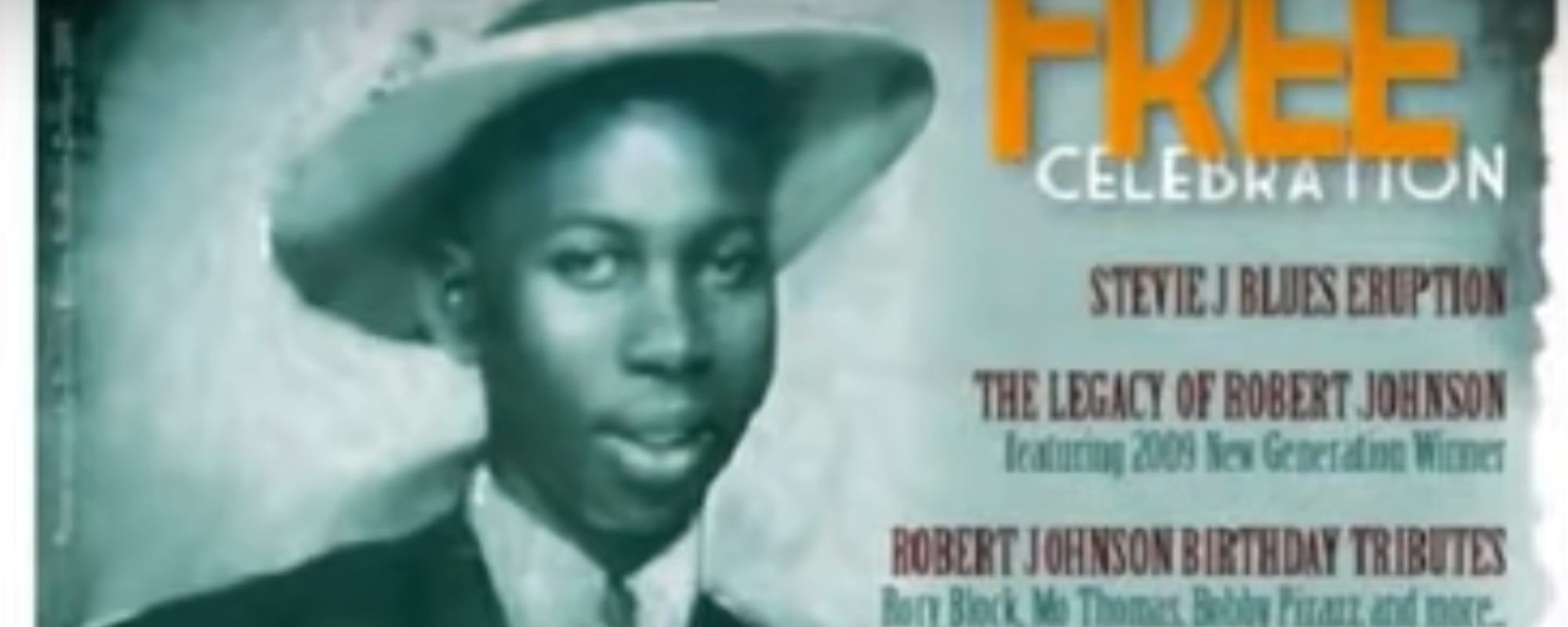Gary Clark Jr. could have had a fine career performing American roots music to diehard fans. He could have filled casino halls and summer festivals rehashing the kind of blues licks that make the lawyers want to go home and pick up their Strat for a few hours.
Videos by American Songwriter
But he didn’t. Clark’s Texas blues is a different kind of animal. It’s mean and nasty, but it’s also much more than simply blues. Though punk rock wasn’t around when people began writing blues, the spirit indeed was, and Clark’s musical ghosts have traveled equally with Chuck Berry and Johnny Thunders.
Clark’s early recordings sound more traditional than what came later on This Land and, most recently, JPEG RAW, but they do hint at something more than pastiche. You can hear echoes of The Black Keys’ garage rock and the Ramones on stage at CBGB when he plays.
“Bright Lights” is an early defining song for Clark and a highlight of his concerts. Traveling a similar road as the early jazz greats from New Orleans, Clark journeyed to New York. The city impressed him enough to write a song, but Clark also impressed New York (and the rest of the world).
New York City Is Not Like Austin
“Bright Lights” follows Clark in New York City. The Austin, Texas, guitarist said he wrote the song after his second visit. Though it wasn’t quite a culture shock, Clark was surprised by how different the city’s energy was from his hometown.
(Woke up in) Woke up in New York City lying on the floor
Just outside of Marcy’s, West 54
You gonna know my name by the end of the night, yeah
You gonna know my name by the end of the night
Bright lights, big city going to my head
I don’t care, no, ’cause you don’t care
Like many before him, Clark wanted to make a name for himself in New York. Frank Sinatra sang the theme to Martin Scorsese’s 1977 film New York, New York, and famously crooned, If I can make it there, I’ll make it anywhere.
Sometimes, a drink will soften the anxiety of trying to impress in the big city. But Clark confesses that an addiction only covers up what’s missing. He’s also talking about his intoxication with New York City and (perhaps) a parallel obsession with fame and success. Moreover, chasing fame can be as damaging to relationships as any chemical addiction.
Start off with the bottle, ended up with the bottle
Taking shots waiting on tomorrow
Tryin’ to fill up what’s hollow
Though “Bright Lights” employs a familiar blues groove, Clark’s music sounds more at home with The Stooges than SRV. It’s the kind of catching groove that wouldn’t bother you if it carried on for 10 minutes.
Blak and Blu
“Bright Lights” appears on Clark’s 2012 major label debut Blak and Blu. He co-produced the album with Mike Elizondo, Rob Cavallo, and Tim Kelley. The album reached No. 6 on the Billboard 200 and introduced the world to the next generation of modern blues music.
He separates himself from other roots artists by bringing in sounds and influences outside the blues guitar tradition. Clark’s grooves cover R&B and hip-hop just as much as they may draw from Muddy Waters or Robert Johnson. He makes the old riffs sound new while pushing roots-based music into the future.
Too often, modern blues reaches a sanitized version, where the edges soften, and expensive guitars and emotionless techniques replace the anguish. Meanwhile, the other thing frequently missing is quality songwriting. But Clark’s blues is different, and “Bright Lights” is both the soul of the great tradition mixed with powerful songwriting.
When Clark sings, You gonna know my name, he isn’t wrong. He’s become a vital point in a long line of great American blues musicians, and his voice is equally as crucial as his extraordinary guitar playing.
Modern Blues
Clark told Rolling Stone that as a kid, he wanted to be in a group like Boyz II Men, which may explain where his lovely falsetto originates. As an up-and-coming guitar hero, he also had a breakout performance at the 2010 Crossroads Music Festival, with some calling him the future Buddy Guy.
But Clark wouldn’t be just another bluesman on the guitar circuit. Though Blak and Blu wasn’t a commercial smash, it showed hints of where he might go. It took a couple of albums before Clark found his stride on This Land in 2019.
“Bright Lights” is an early moment that foreshadows the making of a future legend.
When you purchase through links on our site, we may earn an affiliate commission.
Photo by Gary Gershoff/WireImage













Leave a Reply
Only members can comment. Become a member. Already a member? Log in.